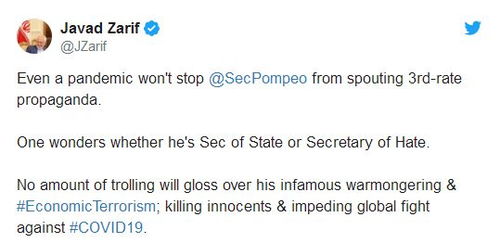Understanding the Role of an Ambassador: A Detailed Insight
Have you ever wondered about the role of an ambassador? An ambassador, often referred to as the “ar sec of state,” is a crucial figure in international diplomacy. This article delves into the multifaceted responsibilities and the impact of an ambassador’s role in shaping global relations.
The Role of an Ambassador

An ambassador is the highest-ranking diplomat of a country in another country. They are responsible for representing their home country’s interests and fostering diplomatic relations with the host nation. The role of an ambassador is both challenging and rewarding, requiring a blend of political acumen, cultural sensitivity, and strong communication skills.
Representing the Country

One of the primary responsibilities of an ambassador is to represent their country. This involves attending official functions, meetings, and events on behalf of their government. Ambassadors also act as a bridge between their home country and the host nation, ensuring that both countries’ interests are well-represented.
Fostering Diplomatic Relations

Another crucial role of an ambassador is to foster diplomatic relations between their home country and the host nation. This involves engaging in negotiations, discussions, and diplomatic missions to promote peace, cooperation, and mutual understanding. Ambassadors often work closely with other diplomats and government officials to achieve common goals.
Advocating for Their Country’s Interests
Ambassadors are responsible for advocating for their country’s interests in the host nation. This includes promoting trade, investment, and cultural exchange. They also work to address any issues or conflicts that may arise between their home country and the host nation, ensuring that their country’s interests are protected.
Engaging with the Local Community
In addition to their diplomatic duties, ambassadors often engage with the local community. This includes attending cultural events, meeting with local leaders, and promoting their country’s culture and values. By doing so, ambassadors help to build bridges between their home country and the host nation, fostering a sense of friendship and understanding.
Challenges Faced by Ambassadors
While the role of an ambassador is prestigious and rewarding, it also comes with its fair share of challenges. One of the biggest challenges is adapting to a new culture and environment. Ambassadors must be flexible, open-minded, and willing to learn about the customs and traditions of the host nation.
Another challenge is dealing with political tensions and conflicts. Ambassadors often find themselves in the middle of delicate negotiations and must navigate complex political landscapes to protect their country’s interests. Additionally, ambassadors must be prepared to handle emergencies and crises, such as natural disasters or political upheavals.
The Impact of an Ambassador’s Role
The role of an ambassador has a significant impact on global relations. By fostering diplomatic relations, advocating for their country’s interests, and engaging with the local community, ambassadors help to shape the world we live in. Their efforts can lead to peace, cooperation, and mutual understanding between nations, ultimately contributing to a more stable and prosperous world.
Conclusion
In conclusion, the role of an ambassador, or the “ar sec of state,” is a multifaceted and challenging position. Ambassadors represent their country’s interests, foster diplomatic relations, and engage with the local community to promote peace, cooperation, and mutual understanding. While the role comes with its challenges, the impact of an ambassador’s work is significant and far-reaching.
| Responsibilities | Description |
|---|---|
| Representing the Country | Attending official functions, meetings, and events on behalf of the government. |
| Fostering Diplomatic Relations | Engaging in negotiations, discussions, and diplomatic missions to promote peace and cooperation. |
| Advocating for Their Country’s Interests | Promoting trade, investment, and cultural exchange while addressing any conflicts or issues. |
| Engaging with the Local Community | Attending cultural events, meeting with local leaders, and promoting their country’s culture and values. |
